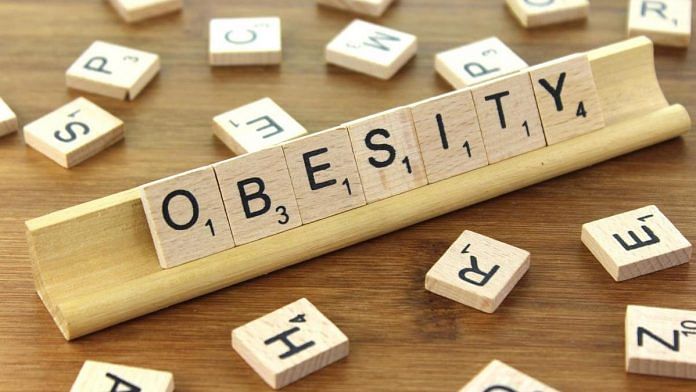Obesity is a metabolic syndrome, an outcome of various physiological factors and genotypes. Globally, it has emerged as one of the major public health burdens among all age groups. According to the World Health Organization, worldwide, obesity has nearly tripled since 1975. A 2020 study by Rujuta Hadaye and others mentions that there are more than 135 million obese individuals in India.
Another area of concern is the burden of mental illnesses that has increased exponentially. According to Our World in Data, in 2017, an estimated population of 970 million people worldwide had at least one mental or substance use disorder. People were mostly diagnosed with anxiety disorder, estimated to be prevalent in around four per cent of the global population.
Do these two epidemics have a synergistic relationship? Mounting evidence suggests so.
What now poses an even bigger challenge is the collision of obesity and mental health illnesses with the Covid-19 pandemic. Prolonged lockdowns, chronic anxiety, uncertainty, lack of movement, and no socialisation have affected both physical and mental health of large populations.
Also read: Ronaldo’s Coke snub is a start. Over to Indian celebs to tell us ‘darr ke aage obesity hai’
Obesity is related to depression, anxiety
Several review studies have shown that around 20-60 per cent people living with obesity and morbid obesity have one or more psychiatric illnesses unlike the general population.
There is a lot of literature available connecting obesity with depression. According to a Centers for Disease Control and Prevention report, around 43 per cent of adults in the US with depression were found to be obese and those who have been diagnosed with depression were more likely to be overweight. Older children have shown similar association. A prospective study involving around 9,300 participants has shown that children who were depressed had a higher BMI than those who were not. After following up for a year, the authors found that children who were depressed were more likely to become obese.
A large study involving around 40,000 participants found that people with extreme obesity reported at least one episode of major depression compared to those with average weight. The authors also reported stronger depression among women participants than men.
A 2017 study by The Lancet journal revealed that around 197 million people had mental disorders in India, among whom 45 million were suffering from anxiety disorder — the most prevalent mental disorders in developed nations.
Unlike depression, anxiety disorders and obesity lack scientific back up. However, few literatures support the hypotheses. A review of 16 studies found a moderate level of evidence to establish the positive association between obesity and anxiety disorders. The authors questioned the lack of clarity to understand the role of obesity severity and subtypes of anxiety disorders.
Anxiety Disorders Association of America’s multidisciplinary conference produced sound literature supporting “clinically important associations between psychiatric disorders and chronic medical conditions” such as cardiovascular diseases, Irritable Bowel Syndrome, obesity among others. Although the majority of the discussion focused on depression, authors suggested “anxiety disorders play an equally important role” basis “robust epidemiological and clinical evidence”.
A recent 2020 cross-sectional study among 732 overweight and obese patients found that Body Mass Index and Body Fat Percentage were significantly higher among overweight or obese patients who had either anxiety or depression. Female participants had a higher prevalence of anxiety than the male ones.
Also read: ‘White foods’ are invading India’s breakfast menu. So are chronic illnesses
Lockdown and mental health
The ongoing pandemic has taken a huge toll on the mental and physical health of the population. Experts produced multiple evidence showing the impact of the pandemic on mental health and substance abuse.
A recent study among 589 obese individuals, aimed at examining the impact of Covid-19 pandemic on substance use, mental health and weight-related behaviors, showed half the participants had some mode of recreational substance use and 10 per cent of them reported increased use since the start of the pandemic. Participants who indulged in substance use admitted panic buying of fast food, challenges in maintaining healthy eating habits and difficulty falling asleep.
Another study from the United Kingdom involving 543 adults with more than 30 kg/m2 Body Mass Index showed 55 per cent participants had consumed unhealthy diet, 61 per cent admitted reduced physical activity, and 80 per cent worsened their sleep during the first lockdown. Most of the participants responded positively for a deteriorated mental health state, higher depression and lower well-being scores.
In an open letter, the director of George Washington University expressed concern related to issues like maintaining regular physical activity during lockdown, avoiding stress or emotional eating, and feeling frustrated seeing Covid-19 weight gain memes. All of these collectively affected overall mental wellbeing.
Also read: How diet, lifestyle & attitude have led Punjab to record India’s highest Covid death rate
Let’s talk solution
As we have embraced Covid-appropriate behavior, adopting a healthy lifestyle should be our new normal too. Home workouts, eating home-cooked meals, meditation, sound sleep, self-care and yoga should be our priorities.
When overwhelmed with stress, anxiety or depression – go out and enjoy the nature, call a friend, seek help from family, listen to music, cook a new dish, read a book, practice deep breathing and be kind to yourself. Become a mindful eater – stop buying packaged foods, pack your fridge with healthy options, find healthy swaps, and eat more organic and fresh.
Remember, prevention can never be replaced with cure.
Dr Subhasree Ray is Doctoral Scholar (Ketogenic Diet), certified diabetes educator, and a clinical and public health nutritionist. She tweets @DrSubhasree. Views are personal.
(Edited by Anurag Chaubey)



